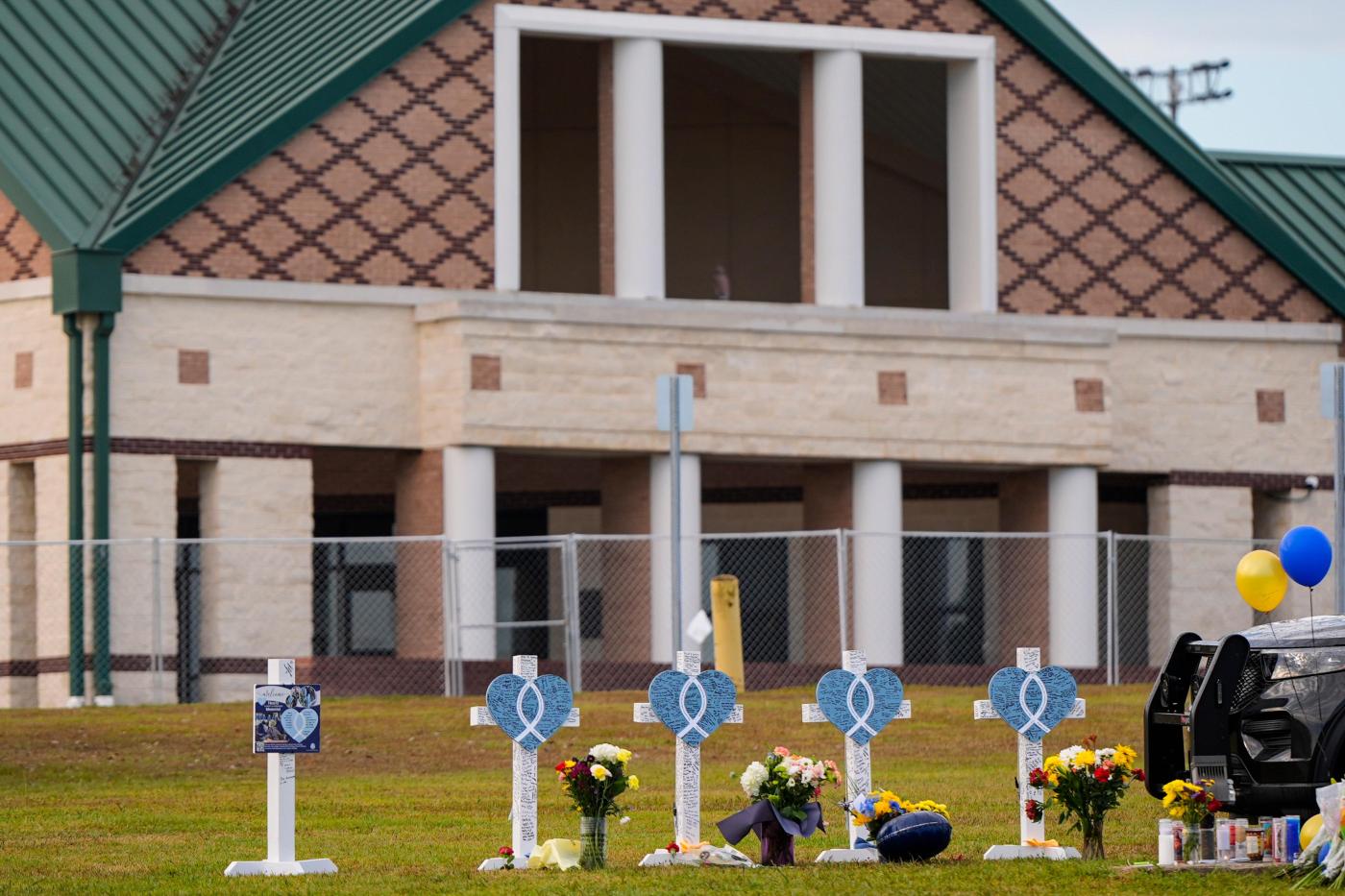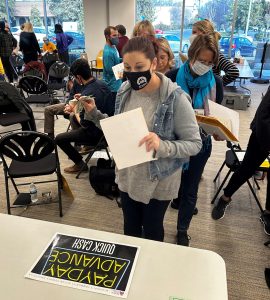Cellphones and guns got mixed up together in a curious way last week after the school shooting in Georgia, which left two students and two teachers dead.
In fact, the shooting may represent a setback for growing initiatives by school districts and state legislatures to ban cellphones entirely from classrooms. This effort is based on the theory that cellphones in school are a distraction that undercuts the focus that students need in order to learn.
In general, I support the banning of cellphones in classrooms. My three-and-a-half decades of teaching writing to college freshmen bridged the cultural sea change that occurred sometime early in this century, from the time when no one had a cellphone to the time when everyone has one.
I urged my students not to use their phones during my classes, but I felt a certain ambivalence. I noted the irony of a rule that the faculty imposed on students, when teachers themselves often couldn’t resist checking their own phones during faculty meetings, convocations or commencements. Being connected, no matter where you are, is the essential mode of modern life, or so everyone thinks. Even funeral homes publish guidelines for cellphone etiquette.
Still, I tried to keep my students focused on what was happening in class instead of what was happening on their phones. When they pushed back, they always relied on this theme: “What if there’s an emergency?”
An emergency? I was dismissive. People had handled emergencies for centuries without cellphones. But if that argument for the banning of cellphones from classrooms ever had much force, it wilts in the face of our modern experience with school shootings.
As Republican vice presidential candidate JD Vance put it recently, school shootings are just “a fact of life,” and, thus, I guess, so are emergencies.
Reports of school shootings always include stories of terrified students and teachers hiding in closets and barricaded classrooms, tapping out pleas for help, expressions of love and, too often, their last goodbyes. Who are the hard-hearted teachers, school boards and state legislators who want to take that away from our students?
Of course, Vance got considerable criticism for his flippant “fact of life” comment, but, really, he was just saying out loud what much of our society — well, let’s be honest, we’re talking about Republicans — has come to accept: We’re much more likely to ban cellphones from classrooms than we are to enact legislation that could prevent school shootings, especially those carried out with semiautomatic weapons, whose lethality exceeds anything the Founders who wrote the Second Amendment could have imagined.
Cellphones, school shootings and our infatuation with firearms are entangled in another interesting way: Just days after the Georgia shooting, while they were still asserting that it was too early to politicize the issue, right-wing commentators were saying what they always say, that school shootings in America are not a gun problem, they’re a mental health problem.
But there’s a well-documented connection between cellphone use and mental health. This finding from the Columbia University Department of Psychiatry is representative: “The constant stream of notifications and updates can create a sense of urgency and a fear of missing out, leading to increased anxiety and stress. Furthermore, the excessive use of smartphones can interfere with sleep, which is crucial for mental health.”
Related Articles
Bay Area schools caught in crossfire of national Title IX battle
Editorial: California should end deceitful bond elections before lowering vote threshold
Milpitas to receive $2.9 million in federal funding for safe school routes
Krazy George helps San Jose wave goodbye to overdue library fines
Students sell lemonade to help their beleaguered San Jose teacher
So, this is the ironic predicament in which we find ourselves: We Americans — children and adults — are deeply attracted to cellphones. Some would say we’re addicted. We’re also deeply attracted to firearms. Addicted, as well? And while cellphones appear to be bad for our mental health, firearms provide inordinate power to those whose mental health — never, perhaps, very strong to begin with — is undermined by its inability to cope with the world in which we live.
Here’s another fact of life: Cellphones aren’t good for learning or for mental health. But, students, in the face of our unwillingness to do much of anything about cellphones or firearms, do your best to keep your cellphones close by. You never know when you’re going to need them to call for help. Or to say goodbye.
John M. Crisp is a columnist for Tribune News Service. ©2024 Tribune Content Agency.












